22+ Sample Travel Agency Proposal
-
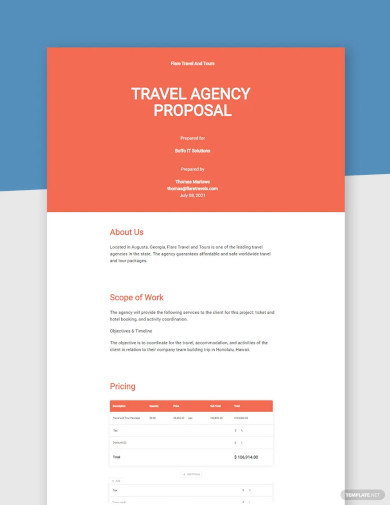
Travel Agency Proposal Template
download now -
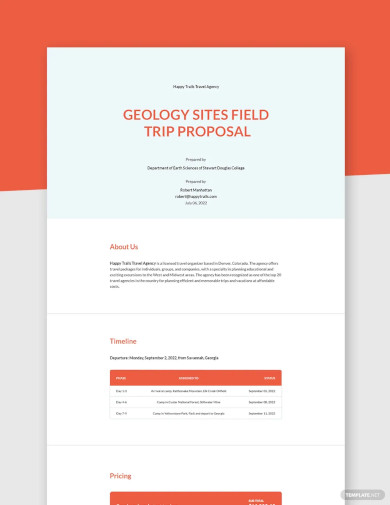
Free Travel Agency Proposal Template
download now -
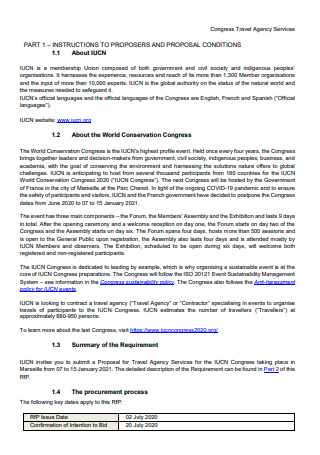
Congress Travel Agency Services Proposal
download now -
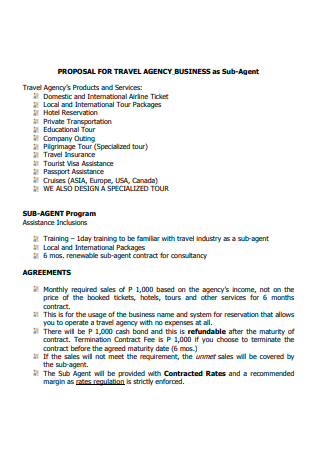
Travel Agency Business as Sub- Agent Proposal
download now -
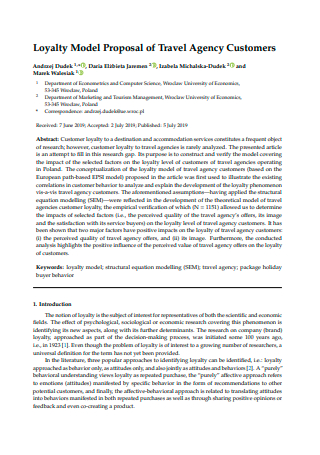
Travel Agency Customers Loyalty Model Proposal
download now -
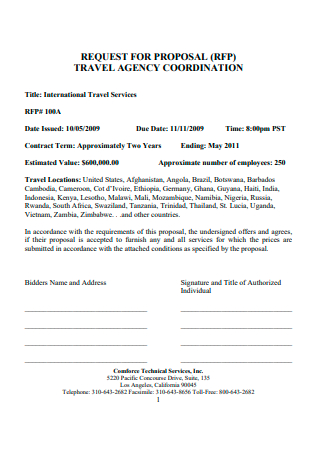
Travel Agency Coordination Proposal
download now -
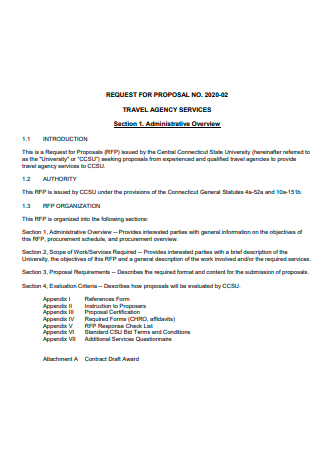
Travel Agency Services Proposal
download now -
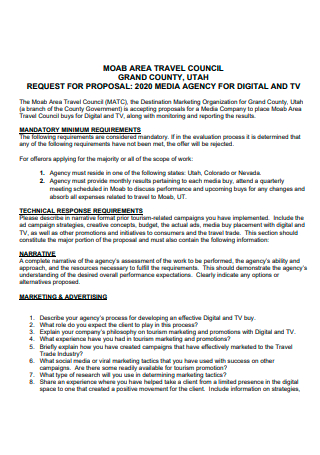
Basic Travel Agency Proposal
download now -
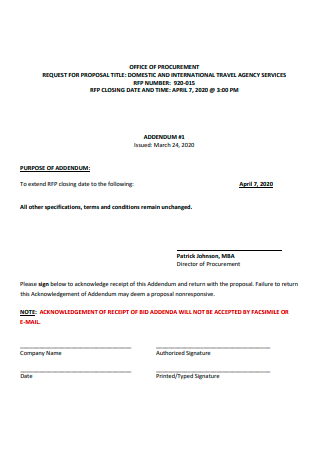
Domestic and International Travel Agency Services Proposal
download now -
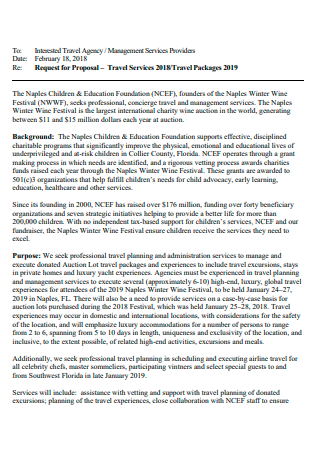
Interested Travel Services Agency Proposal
download now -
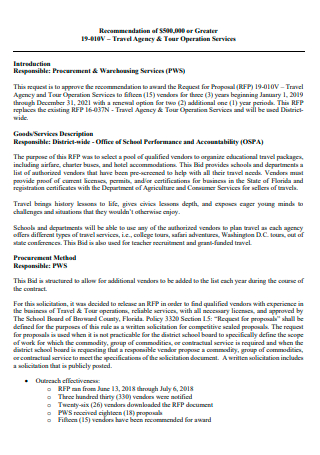
Travel Agency and Tour Operations Services Proposal
download now -
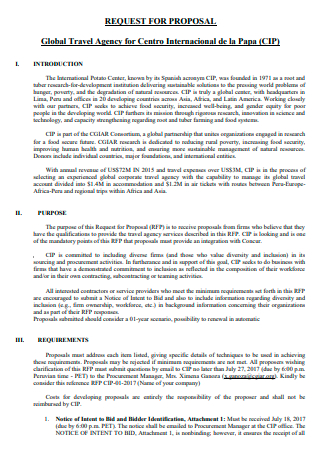
Global Travel Agency Proposal
download now -
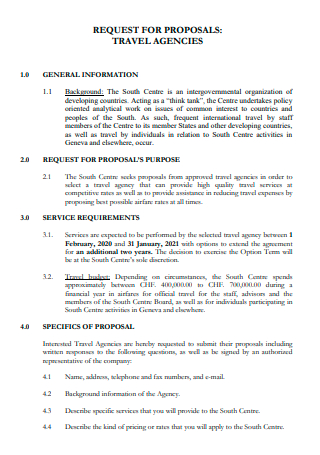
Travel Agencies Request For Proposal
download now -
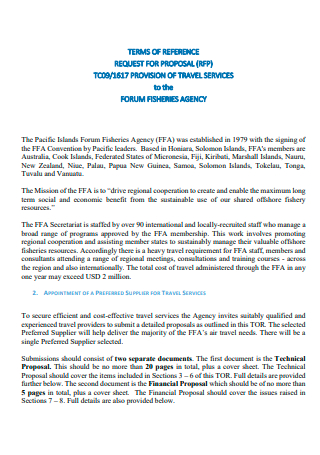
Travel Services Fisheries Agency Proposal
download now -
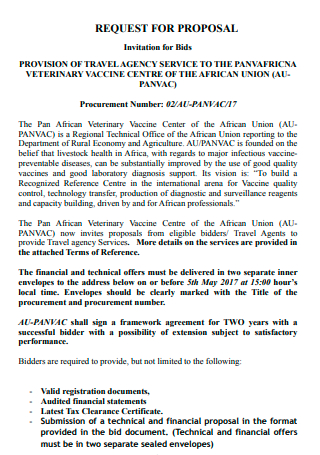
Provision of Travel Agency Service Proposal
download now -
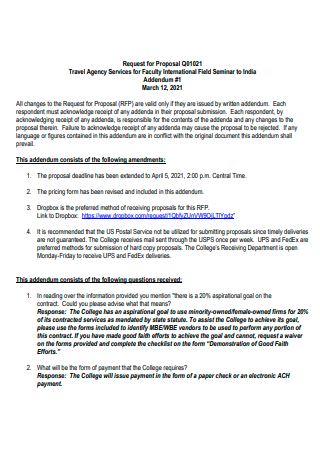
Travel Agency Services For Faculty International Field Seminar Proposal
download now -
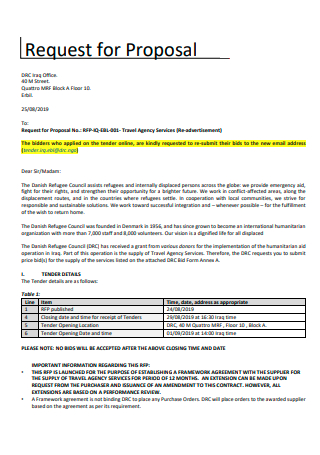
Travel Agency Services Re-Advertisement Proposal
download now -
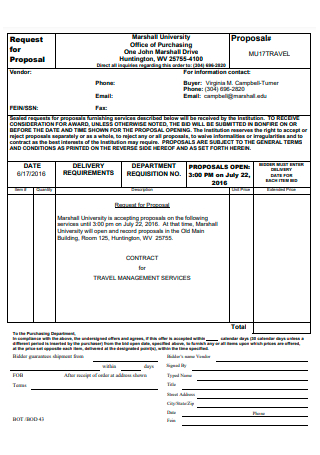
Formal Travel Agency Proposal
download now -
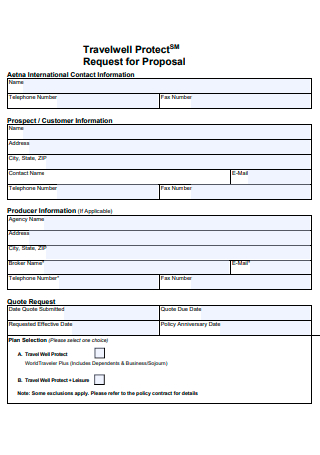
Travel Protect Agency Proposal
download now -
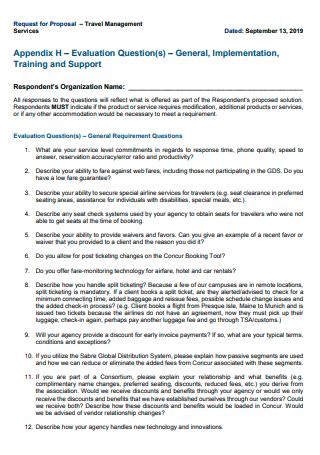
Travel Management Agency Proposal
download now -
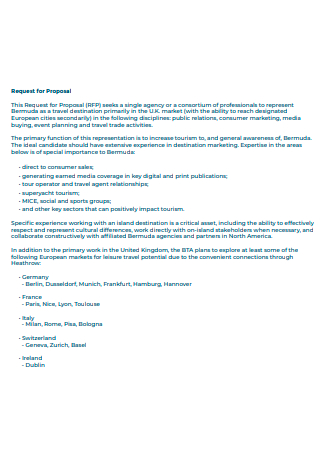
Travel Agency Proposal Example
download now -
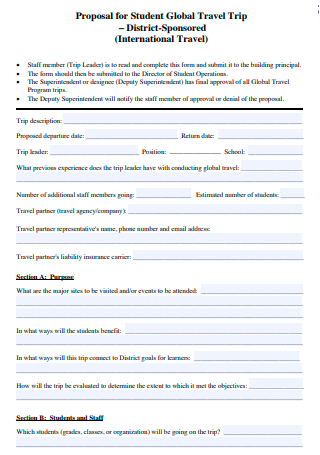
International Travel Agency Proposal For Student
download now -
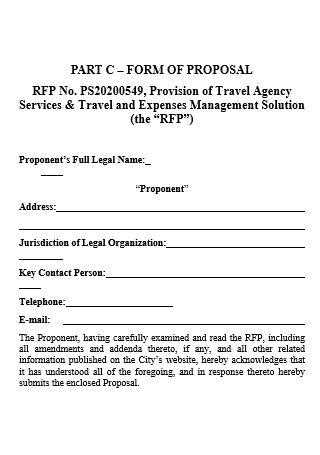
Travel Agency Proposal Form
download now
FREE Travel Agency Proposal s to Download
22+ Sample Travel Agency Proposal
Travel Agency Proposal: What Is It?
The Travel Agency and Its Benefits
Writing Up the Travel Agency Proposal
FAQs
What are some of the advantages of having a travel itinerary?
What are the 5 important questions you should ask when availing travel insurance?
What other services are offered by a travel agency?
Travel Agency Proposal: What Is It?
A travel agency proposal is a proposed travel document made for single or multiple trip destinations offered by travel agencies. Often prepared as a package, the proposal lists down the different destinations of the trip, including the schedule, the transportation and accommodation, meals, fees and expenses, and so on, or what is known as the travel itinerary. Travel agencies also offer, although not primarily included in the proposal, add-on services presented as an option to avail in the travel package. Travel add-on services provide clients a more exclusive and enhanced trip experience, either providing safety and protection coverage as an insurance, or more exclusive tour deals such as private tour tickets and the likes.
Travel agency proposals are often created according to the clients’ travel requirements, lifestyle, or travel budget. To be effective, the proposal should be comprehensive and coherent, giving the client a clear picture of what to expect overall from their travel. After all, the goal of a travel agency is to make their clients’ trip memorable and hassle-free.
The Travel Agency and Its Benefits
During holidays and other break seasons, people often would love to travel, take a break, and just get away from it all. Some would go on a road trip, some would head off to the beach, while others would get off the island and just explore the world. While everyone is usually excited at the prospect of travelling for a vacation, it’s the planning process that’s taking a toll on anyone who is in-charge of the sample itinerary. Coming up with a great destination that everyone agrees to, the booking of airline tickets, transportation and accommodation, it’s all too much for someone whose expertise is somewhere else other than travel planning. That’s when travel agencies come to the rescue. Whether it be a group trip or a solo trip, the agencies take that load off and do all the work for you. All you have to do is just pay them up, pack your bags, and just go! There are a whole bunch of reasons why you should avail the services of a travel agency. Read on to find out more about the benefits of using them for your next trip.
Writing Up the Travel Agency Proposal
The aim of a travel agency proposal, aside from getting approved and signed off by the client, is to ensure that the client’s overall travel expectation and satisfaction is met. As a written document, the proposal should provide a comprehensive list of items and agendas of the travel based on the client’s needs. It should answer all the questions usually asked by a client when it comes to traveling, leaving no room for ambiguity. Although not considered as a contract in itself, the proposal serves as the basis for forming the travel service agreement and contract between the agency and the client. As a travel agent, how do you create that proposal that would seal the deal with your client? Below are the common steps taken when writing up that effective travel agency proposal.
Step 1: Identify the Name of the Client and Who Prepared the Proposal
On the very top part of your proposal, write down the name of the travel agent who prepared the proposal, including the title position, name of the travel agency, address, phone number, and other contact information. Do the same as well with the name of the client, by indicating the name of the client to whom the proposal is for, and their contact information.
Step 2: The About Us Section and the Overview of Services
On this part, give a brief description of the travel agency. Oftentimes, travel agencies would give a short history of how they were founded, including their mission and vision statement. The mission statement of the agency should clearly describe the reason for establishing the business, and what is its overall purpose. The vision statement should describe what are the goals of the travel agency, what do they plan to accomplish, and a brief description on how they plan to achieve those goals. Also included in this part is a short overview of the services that they offer. This could be listed down in an itemized format. The services offered could include: corporate and business travel and tours; family vacation packages; vacation cruises; and event destination packages, such as weddings, honeymoons and anniversaries. Some agencies also offer selected, or stand-alone, services only such as booking tickets, reservation for hotel accommodations, transportation arrangements, et cetera.
Step 3: Client’s Travel Overview and Proposed Itinerary
Begin writing down an overall summary of what you have discussed with your client, including the trip requirements and the budget suggested by the client. Give a highly descriptive summary of what the overall travel experience will be like in that particular destination, and then delve into the proposed and discussed itinerary next. The travel itinerary should be written in a way that could help the client track down where they’re staying, where they’re going, and what to do next. It is usually written down in a schedule-type format, going by per day, and the activities are broken down according to time. And since this is still a proposal, changes can still be made in the itinerary to suit the client’s preference.
Step 4: Add-on Services
These are services that are not automatically part of any travel package or proposal, but are offered as optional add-on services that the clients can avail. Usual add-on services offered are travel insurance, Visa assistance, and curated travel experience. Travel insurance usually offers protection from costs and losses that occur when traveling. Protection coverage is usually offered for flight delayed and cancellation, baggage lost, or even emergency medical coverage. The Visa assistance service aims at securing the travel visas for the clients, thereby saving their clients from the hassle and time-consuming process of getting a visa. Another add-on service that clients can avail is called a curated travel experience. Going through a curated travel means a more exclusive and selective experience than what a common tour normally offers. For example, tourists nowadays want to see more than just an overview of the Colosseum in Rome; they’d also wanted to get an underground access to get the feel of what the early gladiators had to live through in those days. Another good example is the Holy Land tour, where tourists have the opportunity to go to the actual places where Jesus Christ was supposedly to have been eons of ages ago. Curated travel service is a “walk in the footprints” experience for the tourists.
Step 5: Total Travel Cost
This is the part where you break down the overall cost of the travel package as discussed with the client. It should identify the type of travel package availed, the number of travelers, the number of days for the travel, and including any add-on services that the client availed. Once you have presented the proposal, including the total travel cost, get your client to review and approve the proposal by signing off at the bottom of the document.
Step 6: Reviews and Testimonials
This part is optional; to include or not in your proposal. It would be best, however, if on a separate page, attached to your proposal, you could give at least three testimonials or reviews from your past satisfied clients as a way of marketing strategy. This would give your potential clients an idea on the quality of service offered by your agency, and how they should expect the same satisfaction as experienced by previous clients.
FAQs
What are some of the advantages of having a travel itinerary?
Travel itineraries offer, but not limited to, these following advantages: the ability to utilize and maximize travel time, while providing some leeway for unforeseeable circumstances such as traffic, weather conditions, and even delayed flights; the ability to manage travel expense reports from budget estimations; and the ability to prepare in advance by booking flights tickets, making hotel reservations, and even preparing the clothing baggage needed for the trip.
What are the 5 important questions you should ask when availing travel insurance?
Since a travel insurance is considered as an add-on purchase to a travel package, clients need to know what the essential services and coverage a travel insurance offers. These are the five important questions clients should ask before they purchase a travel insurance: what are the insurance requirements needed for the destination; what is covered in the policy, per premium; what are trip cancellation reasons covered, and if there will be a reimbursement; is there a time limit to the insurance policy; and how to make a claims settlement as necessary.
What other services are offered by a travel agency?
Aside from the usual tour and travel packages, travel agencies also offer the following either as a stand-alone service or as an add-on to packages: airline bookings; car rentals; airport lounge access; delivery and logistics services for luggages and other important items; outdoor activities; travel event planning, and so on.
Memorable, comfortable, convenient and hassle-free travel are the things that people look forward to when they choose to avail the services of a travel agency. It’s certainly nice to have somebody else take care of all the planning, booking, and making reservations for you, that all you have to do is just to show up and go. As a travel agency owner, you’d want to lay out the plans you have made in a document, as discussed with your client, and get their approval and sign-off to start fulfilling their travel request. That document right there is the travel agency proposal document.
Fortunately, we have on our website several travel agency proposal templates to choose from to make your life as a travel agent, or as a travel agency owner, easier when presenting to your clients. It is easy to fill out and to follow through. Download one now, and start making those effective travel proposals for your clients’ next trip!
